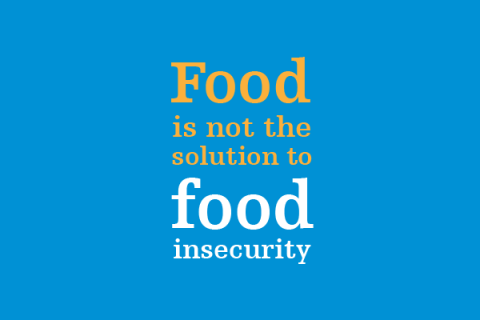We need sustainable solutions

The provincial government announced a $1 million contribution to Feed Nova Scotia this week. While food isn't the long-term solution to food insecurity, people need food now, and we’re grateful that this funding will help provide it—whether that's directly through our COVID-19 Food Box program, or additional help for our member food banks and meal programs across the province.
But we can't lose sight of why thousands of people can't put food on their tables: Because government, for decades, has failed to enact policy that could bring about real, meaningful change. And, as a society, we’ve failed to hold them accountable. So now we do what's always been done—try and plug the dam with charity.
The need continues to grow and alongside it so does the unrealistic expectation that charities like ours, and the 140 in our provincial network, will continue to meet it—as though the time, money, heart, energy, and compassion we all have is infinite.
We know these solutions aren't sustainable for anyone. At some point, we must stop and tackle the root cause.
People aren’t food insecure because they don’t have enough food. It’s because they don’t have consistent, economic access to food. And that’s exacerbated by systemic racism and oppression, precarious and low-paying work, inadequate disability support and social assistance, mental and physical health challenges, unaffordable housing, and the ever-rising cost of food. And the list doesn’t end there.
It’s a complex problem, but there is no shortage of solutions. For decades, people with lived experience, organizations, politicians, healthcare professionals, and academics have been advocating for them. A poverty reduction plan with timelines and targets, affordable housing, a living wage, and a dignified, adequate Income Assistance program are all things our provincial government can do. And we echo Food Banks Canada’s federal recommendations, including Employment Insurance reform, country-wide minimum income floor pilots, better support for low-income single adults, and new supports for renters with low income.
Better is possible. It can be done. We saw it last year when the introduction of CERB flattened the curve of food bank use at the beginning of the pandemic. When people have money, they don’t need to rely on charity to meet a very basic need. They can live with dignity.
As we put this funding to work in providing food support today, we’ll continue to push for real food security. That’s the new normal we all should be fighting for.